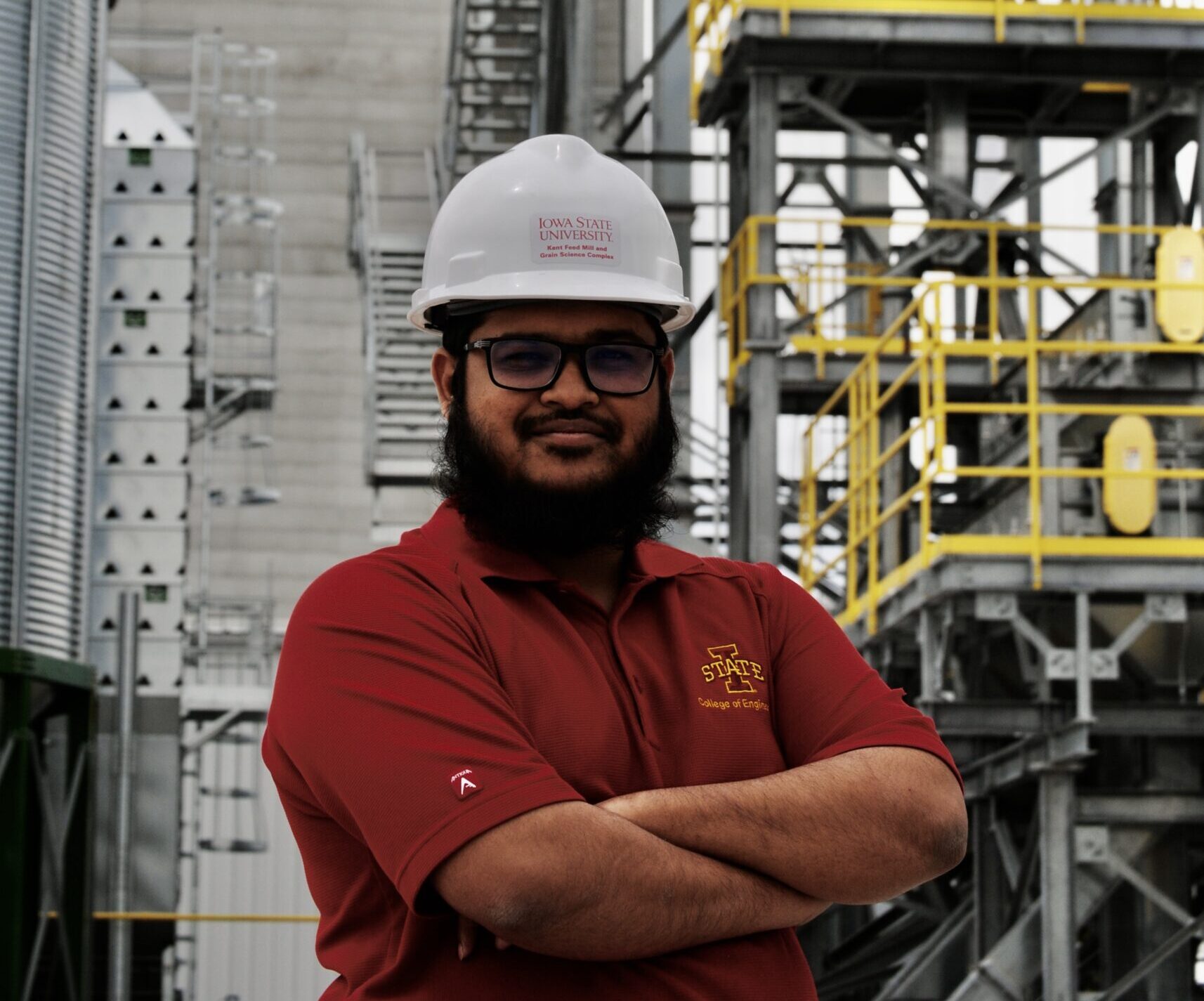
Grain elevators have evolved since the 1900s, when they first became common practice for grain storage and cleaning. The first modern grain elevators were powered by steam engines; Now, they’re electric, allowing for faster processing time. But what is the next step in efficiency? Graduate student A S M Younus Bhuiyan Sabbir is collecting data on energy consumption rates from local grain elevators to understand what is next.
“All over the world, agriculture contributes to greenhouse gas emissions through necessary harvest processing. In finding ways to reduce the footprint, I am analyzing grain elevators and the energy consumed through operation,” said Sabbir.
He recently received the Thamodaran Family Innovation in Agriculture Student Award for his research proposal; the award provides funding to bring innovative agricultural solutions to reality through research and development.
“There are lots of factors in determining how to improve this process, and defining the energy needs will allow us to find suitable alternatives to powering the elevators and move towards achieving net-zero carbon emissions in agriculture,” said Sabbir.
Sabbir works directly with faculty members Dirk Maier and Tom Brumm and collaborates with Kurt Rosentrater and Carl Bern. Together, a team of vast grain experience to challenge the grain elevator status quo.
Hands-on experience at the Kent Feed Mill
Sabbir does his work at the Kent Feed Mill. There, he also supports the in-house processing at their grain center and assists in teaching feed technology in the Iowa Corn Education Building next door. He works with the processes he is striving to improve every day.
“The ISU Kent Feed Mill and Grain Science Complex gives students first-hand access to things they wouldn’t otherwise see beyond course material. This is a space for them to experience and get trained on feed and grain processing before entering the industry, to ask questions, and learn,” said Sabbir.
